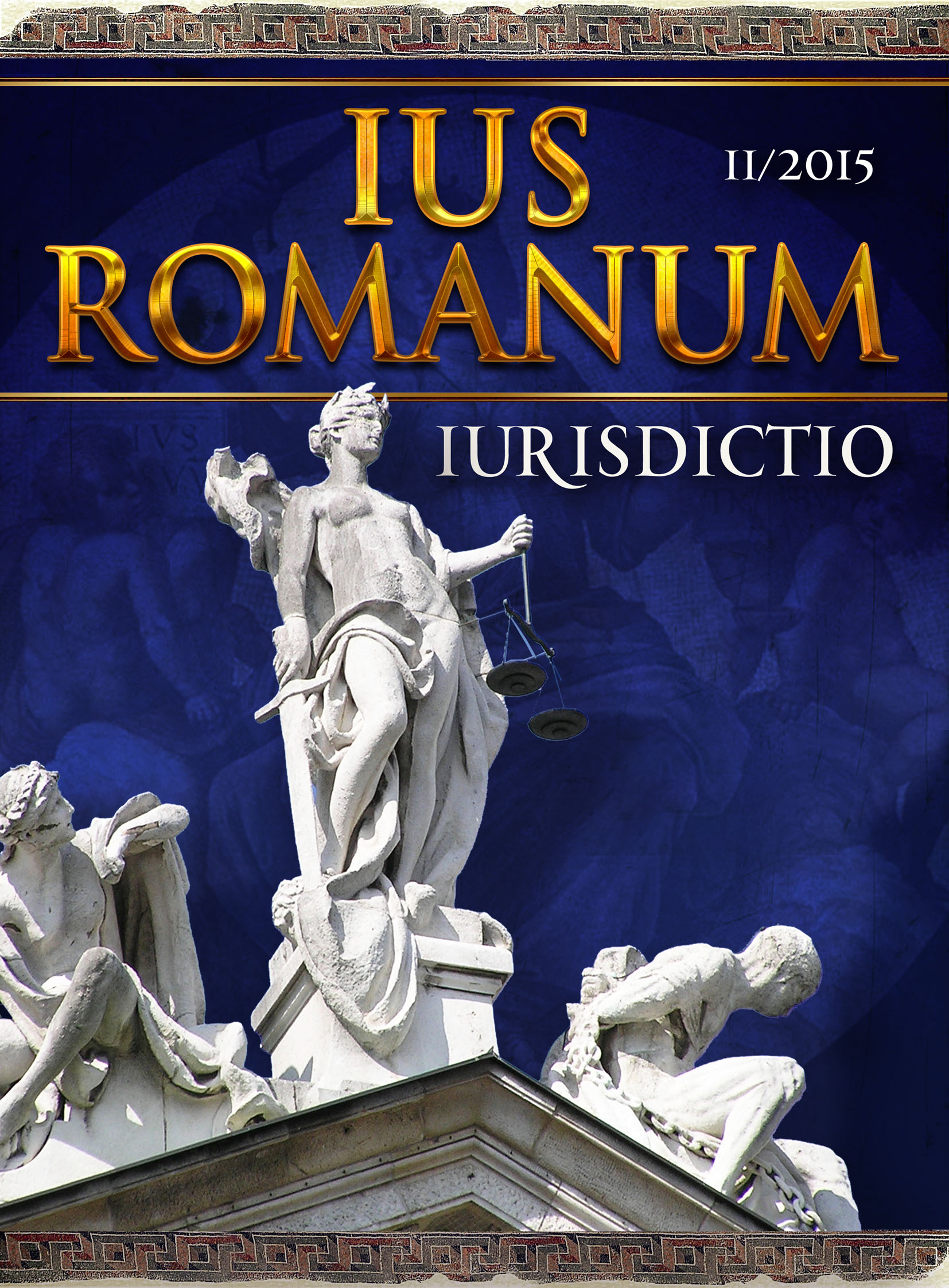IURISDICTIO EPISCOPALIS МЕЖДУ ИМПЕРИЯТА И CHRISTIANITAS: ИСТОРИКО-КАНОНИЧЕСКИ АНАЛИЗ
НА ПОЯВАТА НА POTESTAS SACRA
IURISDICTIO EPISCOPALIS BETWEEN THE EMPIRE AND CHRISTIANITAS: HISTORICAL AND CANONICAL ANALYZIS OF THE EMERGENCE OF POTESTAS SACRA
Author(s): Javier Belda IniestaSubject(s): Law, Constitution, Jurisprudence, History of Law, Constitutional Law, Civil Law, Canon Law / Church Law, EU-Legislation
Published by: Софийски университет »Св. Климент Охридски«
Keywords: iurisdictio episcopalis; рotestas directa; рotestas indirecta; auctoritas episcopalis; relations Empire - Church, Christianity
Summary/Abstract: The emergence of Christianity in Roman society meant a necessary process of adaptation of both realities that coexisted in a common political and cultural space. Apart from the first misunderstandings on the part of each - crystallized in groups that guessed the imminent arrival, on the one hand, and the periodic violent reactions against this strange group of followers of Christ, executed by another - the truth is that both of them little by little adapted to a coexistence to which they were forced by the common space they shared. Christians, already of very diverse origin socially, geographically and religiously, had to take little by little awareness of their own identity, building over the years an internal organization that had to respond not only to the needs of this primitive religious society within the gigantic political framework of the Empire, but also to a series of circumstances that were presented to them within their own evolution as a particular human group, with a clear mission - the proclamation of the Gospel. Among these organizational needs was the need for administration of justice, necessary in every society, and clearly articulated in the Roman world, but absolutely remote from the evangelical principles that were supposed to guide all action of Christians. Thus begins the difficult task of building an organizational system capable of responding to the needs of the community and the message of Jesus, first carrying out this task within the Empire and later under its protection. This, however, does not suppose abandoning the religious authority due to the established political power, but rather a complicated combination between obedience to the authorities and application ad intra of a legal system according to the condition of believers, whose starting point was, without doubt, the Gospel. Of course, when both visions collided, the one born of faith was supposed to prevail but, as far as possible, the two were combined. This article aims to show the relationships maintained by the ecclesiastical authority as its power developed, starting with the exit from hiding until the fall of the Empire and the beginning of the Medieval era. We must be clear that concepts such as potestas, iurisdictio or auctoritas were still in a first stage of gestation, not only for the temporal power, which to a certain extent preserves the imperial heritage, but also for a Church that has just left the clandestine, and must coexist with an authority that is becoming aware of itself.
Journal: IUS ROMANUM
- Issue Year: 2015
- Issue No: 2
- Page Range: 415-435
- Page Count: 21
- Language: Bulgarian

